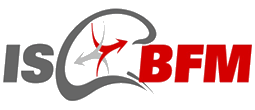- Home
- About Us
- Newsletters
- Meetings
- Membership
- Journal
- Scientific Interest Groups
- Helpful Links
HistoryHistory of International Society for Cerebral Blood Flow and MetabolismOlaf B Paulson1,2, Iwao Kanno3, Martin Reivich4 and Louis Sokoloff5
Correspondence: Professor OB Paulson, Neurobiology Research Unit, Copenhagen University Hospital, Rigshospitalet, Build. 9201, 9 Blegdamsvej, DK-2100 Copenhagen, Denmark. E-mail:[email protected] Received 16 September 2011; Revised 18 October 2011; Accepted 8 November 2011 AbstractInterest in the brain's circulation dates back more than a century and has been steadily growing. Quantitative methods for measurements of cerebral blood flow (CBF) and energy metabolism became available in the middle of the 20th century and gave a new boost to the research. Scientific meetings dealing with CBF and metabolism were arranged, and the fast growing research led to a demand for a specialized journal. In this scientific environment, the International Society for Cerebral Blood Flow and Metabolism (ISCBFM) and its official Journal of Cerebral Metabolism were established in 1981 and has since then been a major success. The development of new brain imaging methods has had a major impact. Regulation of CBF and ischemia has been the main topics at the meetings. A new field of brain mapping research emerged and has now its own society and meetings. Brain emission tomography research has grown within the society and is now an integrated part. The ISCBFM is a sound society, and support of young scientists is among its goals. Several awards have been established. Other activities including summer schools, courses, satellite meetings, and Gordon conferences have contributed to the success of the society and strengthened the research. Read the full article here. Reprinted by permission from Macmillan Publishers Ltd: Journal of Cerebral Blood Flow & Metabolism (2012) 32, 1099-1106; doi: 10.1038/jcbfm.2011.183; published online 21 December 2011, copyright (2012).
Click here to view Prof. Sokoloff's video. |
